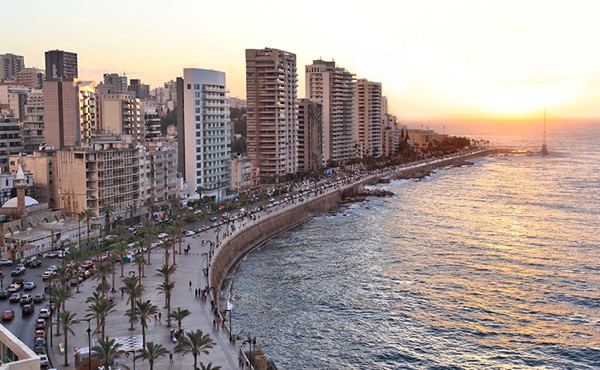
Sluggish economic conditions are expected to weigh on the Lebanese economy for the foreseeable future, as political instability and spillovers from the war in Syria drag on the fragile Mediterranean country.
Lebanon’s gross domestic product (GDP) expanded 1% in 2015. Real GDP growth has weakened in each of the past four years to only a fraction of the post-2006 boom period, where growth averaged more than 9% annually.
The Lebanese economy faces a myriad of challenges that mostly stem from political instability and the ongoing war in neighbouring Syria. This uncertainty has become a drag on foreign direct investment and tourism, two key pillars of the economy.
Business conditions deteriorated sharply at the end of the second quarter, according to the Markit/BLOM Lebanon purchasing managers’ index (PMI). A sluggish tourism sector was cited by businesses as one of the main factors undermining the economic outlook.
Inflows of Lebanese expatriates and their investment dollars are key drivers of Lebanon’s service-driven economy. According to the World Travel & Tourism Council (WTTC), travel and tourism contributed 7.6% to Lebanese GDP in 2014. This contribution fell to less than 2% in 2015.
A once booming real estate sector has also slowed. According to the World Bank, registration fees and cement deliveries declined by 10% and 14%, respectively, in 2015.
Lebanon’s business sector has been in contraction for more than three years as a cloud of uncertainty hangs over the country. Lebanon has been without a president since May 2014, reflecting the sectarian power struggle that defines the country’s political arena.
While low oil prices have been a net positive for the economy, the indirect consequences are beginning to manifest themselves in the form of lower remittances and capital flows from Gulf Cooperation Council (GCC) countries.
The World Bank expects Lebanon’s economy to expand just 2.5% annually. Potential growth is unlikely to materialize without a resolution to the Syrian war, now in its fifth year. Lebanon is currently housing an estimated 1.5 million Syrian refugees, with the highest concentration in the Bekaa Valley and Beirut.
The influx of Syrian refugees is not only a drag on Lebanese resources, it threatens to disrupt the fragile sectarian balance within the country. Lebanon has a unique power sharing system between 18 sects of Christians and Muslims that make up the country’s indigenous population. Lebanon’s confessionalism system states that the country’s President must be Maronite Catholic, its Prime Minister Sunni Muslim and its Speaker of Parliament a member of the Shi’a Muslim faith.
ECONOMIC CALENDAR

Leave a Reply
You must be logged in to post a comment.